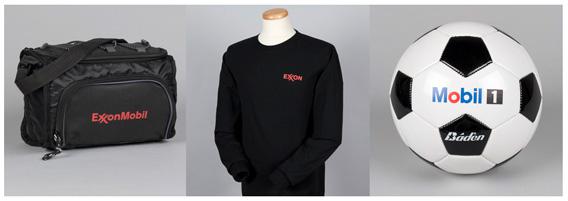This is the first of a new series of occasional posts on management by Slate “Dismal Science” columnist Ray Fisman, published in partnership with the Harvard Business Review.
In the corner of my home office sits a cabinet full of tchotchkes and gifts that neither I nor my wife can quite bear to part with. It includes a silver Tiffany picture frame I received from Columbia Business School for 10 years of teaching and a company-embossed Swiss army knife that my wife got one Christmas, back in her days as a consultant.
While many might see this sort of gift giving as a sign of the boss’s kindness and generosity, economists mostly see inefficiency: Why can’t Columbia just pay me a cash bonus rather than offering presents that collect dust? One answer comes from a classic study by Nobel laureate George Akerlof, a pioneer in the field of behavioral economics, which focuses on the idea of “gift exchange” in the workplace. Acts of kindness by employers, the reasoning goes, elicit more effort from their employees in return, hence the utility knives and picture frames. But Akerlof mostly had in mind monetary rewards—you pay me above-market wages, and I’ll repay the favor by working harder—which can’t quite account for the booming corporate gift business.
A study published last year by German and Swiss researchers suggests that economists’ focus on cash might often be misplaced. They found that gifts were far more motivating to short-term employees than unexpected cash bonuses, effectively paying for themselves by improving productivity. The findings provide some guidance on the types of gifts that are likely to engender the greatest motivation and loyalty.
The study was inspired, in part, by the need to catalog books at a German university’s economics library. Student catalogers were recruited to spend half a day helping out, with an advertised hourly wage of 12 euros. While somewhat removed from the corporate context that most managers are interested in, the study has the merit of focusing on a task for which it’s easy to measure productivity: how fast and accurately employees catalog their books. It was also a situation in which employees wouldn’t expect their productivity to elicit further gifts or payments later on, since they were told explicitly that the job wouldn’t continue past the morning’s work.
Before the students started to catalog the books, the experimenters told some of them that they would receive an unexpected 7-euro bonus—a 20 percent pay hike relative to the promised wage of 36 euros for the three-hour job. Another group was given a gift-wrapped water bottle that was worth around 7 euros. (In some versions of the experiment, a price tag was left on and catalogers were informed of the present’s value, to ensure that the employees didn’t overestimate it.) Crucially, a separate set of students didn’t receive any bonus at all, to serve as a baseline to measure the effects of gifts and extra cash.
The cash bonus didn’t have any effect on the speed or accuracy with which the students did their jobs. However, those receiving the free bottle reciprocated by upping their data-entry rate by 25 percent, a productivity increase that more than offset the cost of the bottle itself.
It’s not that the workers particularly loved their bottles—in fact, in a separate experiment in which catalogers were offered the choice between a bottle versus 7 euros, 80 percent took the cash (and still worked a lot harder). Rather, it was the thought that counted, and simply handing out a few more euros hardly takes much thought. Even offering the option of a gift showed that the employer cared.
An intriguing final version of the experiment underscored the importance, in the eyes of the employees, of the thought and effort bosses put into their gifts. This time, the cash was delivered as a 5-euro note folded into an origami shirt and a 2-euro coin with a smiley face painted on it. The origami money-gift generated the highest increase in productivity of all. (While the researchers never handed out gift cards or other easy-to-obtain cash equivalents that are common and efficient employee rewards, one can imagine that a Starbucks gift card doesn’t exactly scream “I care.”)
The study isn’t without its limitations. It’s hard to imagine that the average Wall Street trader would work harder for a pink Cadillac than a six-figure bonus. The motivational effects of cash surely become more important when the stakes get higher, and gifts probably work best when tailored to the particular set of employees. That’s how you really show you care.
And that, more than gifts versus cash, is really the study’s takeaway. Many employees toiling away in stores, factories, and cubicles are desperate for a sense of meaning in their work lives. Even the smallest gesture of kindness that shows they’re part of an organization that actually cares can give them purpose—and that leads to motivation.
